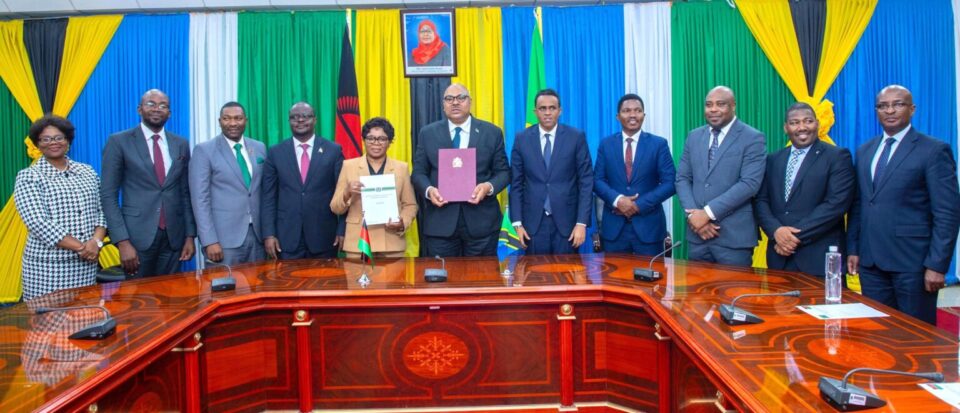DAR ES SALAAM, Tanzania — In a significant diplomatic breakthrough, Tanzania and Malawi have reached a new trade agreement, signaling a positive shift in their bilateral relations.
The agreement, which officially took effect on May 2, 2025, will allow the resumption of trade between the two nations, after months of negotiations and policy adjustments.
This move comes after a period of stalled trade, which was largely influenced by logistical challenges and political tensions that had previously strained economic ties. Both countries have now agreed to streamline trade procedures, focusing on key sectors such as agriculture, manufacturing, and natural resources.
According to officials, the agreement is a response to the growing demand for regional economic integration within the East African Community (EAC) and beyond.
“This new trade partnership is not only a crucial step for Tanzania and Malawi but also for the broader economic cooperation in the region,” said Tanzania’s Minister of Foreign Affairs, Emmanuel Mwanaidi.
“We are committed to creating a stable and productive environment for mutual economic benefit.”
For Malawi, the agreement provides an opportunity to enhance its export potential, particularly in agricultural goods such as tobacco and tea, which are vital to its economy.
Tanzania, on the other hand, stands to benefit from greater access to Malawi’s natural resources, as well as improved trade routes to the southern African market.
The deal also emphasizes improving transportation links between the two countries, with specific investments planned for road, rail, and port infrastructure.
These investments are aimed at reducing trade costs and increasing the speed of goods movement across borders, making commerce more efficient and less costly for both sides.
Malawi’s Minister of Trade and Industry, Aisha Mkandawire, welcomed the agreement, calling it a “new dawn” for regional trade.
“This is the beginning of a new chapter in our trade relations. It paves the way for more collaboration and shared prosperity between our nations,” Mkandawire said during a joint press conference in Lilongwe, the Malawian capital.
The resumption of trade is expected to bolster the economies of both countries, which have faced various challenges in recent years, including inflation, infrastructure deficits, and fluctuating global commodity prices.
Analysts predict that the renewed trade partnership will bring immediate relief to businesses in both nations, particularly small and medium enterprises (SMEs), who rely on cross-border commerce to stay competitive.
“This agreement is a long-awaited win for businesses and consumers on both sides,” said economic analyst Samson Chirwa, based in Lilongwe.
“It will provide greater access to goods, reduce prices, and ultimately improve economic stability in the region.”
The deal is also seen as a potential model for other nations in the region, with many looking to Tanzania and Malawi as examples of how diplomatic negotiation and regional cooperation can lead to tangible economic benefits.
In light of this, both countries are hoping to turn the page to a new chapter of trade cooperation, the focus now shifts to implementation.
Officials on both sides have expressed optimism that this agreement will not only help bolster their economic recovery but also strengthen regional unity in East and Southern Africa.





